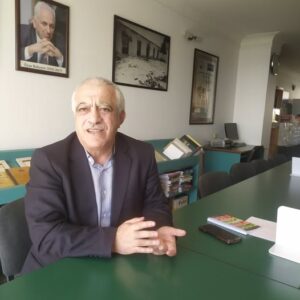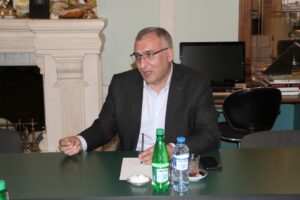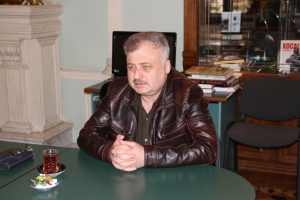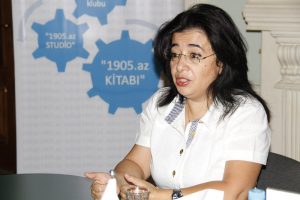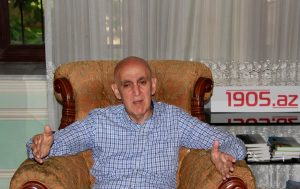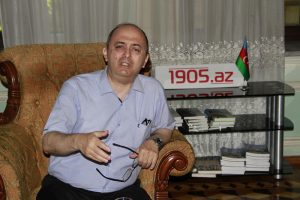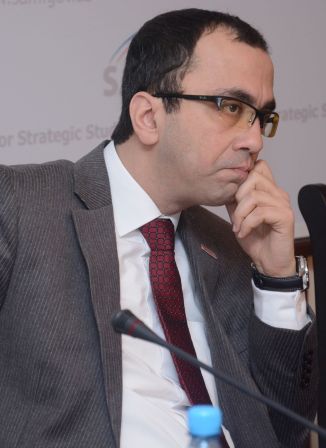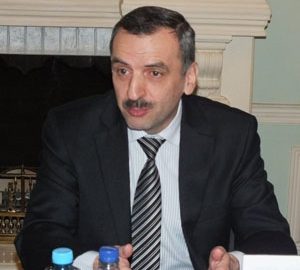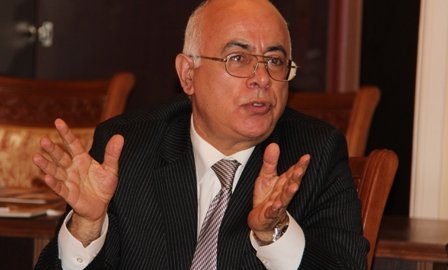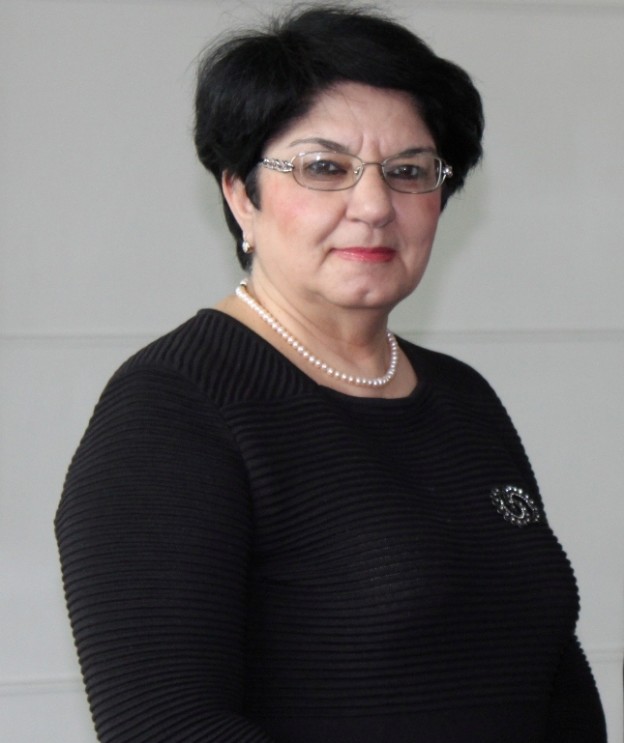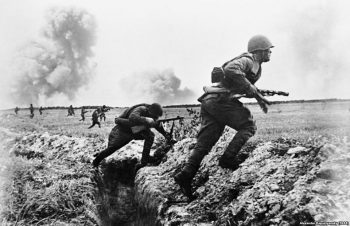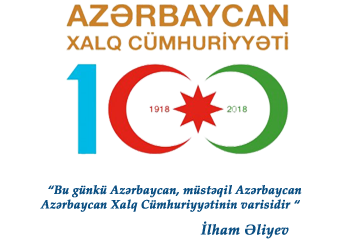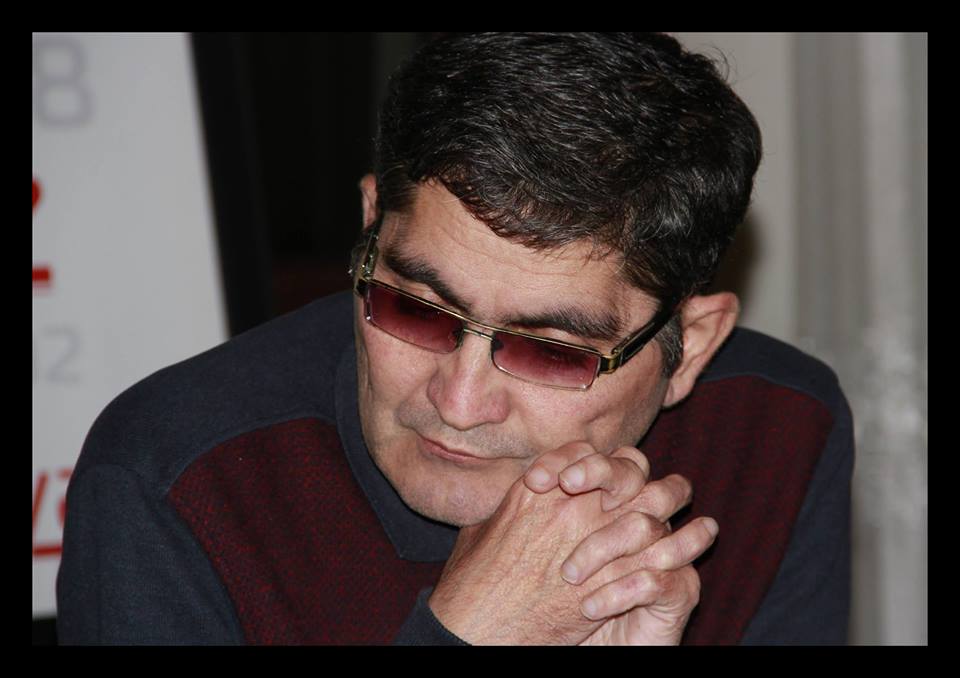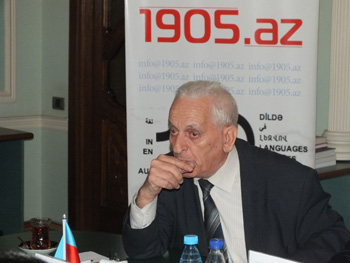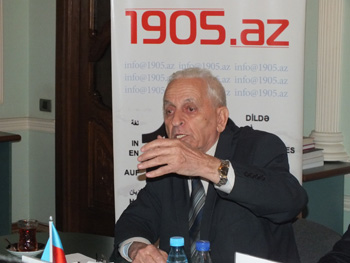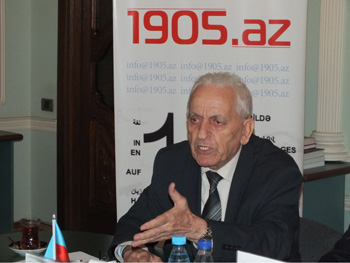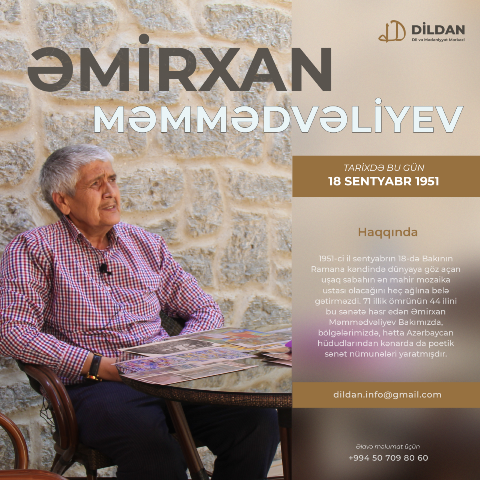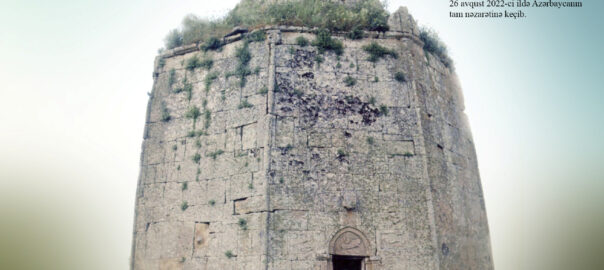On 10 April 2014, PACE passed Resolution 1990 (2014) envisaging sanctions against the Russian delegation over the events unfolding in Ukraine. The major reason for imposing sanctions on the Russian delegation was the occupation of Crimea. The approval of this draft resolution raised questions. Why are the sanctions imposed on the Russian delegation, whereas, no sanctions are applied against the delegation from Armenia – the country which has occupied 20% of Azerbaijani territories and has been retaining it under control for many years?
Therefore, in June 2014,1 tabled a motion, calling for applying sanctions against the Armenian delegation for the occupation of Azerbaijani territories and this motion was published on PACE’s website on 18 June 2014. My motion made references to PACE Resolution 1990 (2014) dated 10 April 2014 envisaging sanctions against the Russian delegation over the developments in Ukraine. Proceeding from the same standard, I also called for the imposition of similar sanctions against the Armenian delegation until the end of the occupation of the Azerbaijani territories.
The motion was signed by 58 parliamentarians from 14 PACE member states and was emailed to the PACE Secretariat on 7 June. On 10 June, the Secretariat confirmed the receipt of the document. In accordance with the rules of procedure, the motion with the original signatures of 58 MPs was submitted to the Secretariat on 16 June. At the same time, I sent a letter to the Bureau members, hoping sincerely that the PACE leadership and the Secretariat would be unbiased towards Azerbaijan as a whole, and in particular, with regard to the motion in question.
PACE Secretary General Wojciech Sawicki has always distinguished himself with sharp anti-Azerbaijani position on issues put forward for discussions at PACE and showed strong bias and outright discrimination towards Azerbaijan. I was absolutely sure that he would remain loyal to his anti-Azerbaijani position this time again about the motion, calling for sanctions against Armenia, and by all means, he would try to prevent the motion from being passed. Indeed, at the 22 June meeting of the Presidential Committee, PACE Secretary General Wojciech Sawicki raised a procedural protest against the motion at the last minute. Commenting on Rule 9, he said that the issue of themandate should be referred to in the motion calling for sanctions.
However, we should note that as a whole, in case of a procedural protest, the Secretariat at a meeting quotes a relevant article verbatim. But an article (or a sub-item) forbidding a call for the imposition of sanctions by submitting a motion cannot be cited, simply for the reason that no rules forbid it. No article of the rules indicates the necessity of questioning the issue of a mandate for discussing or applying sanctions.
In addition to this, in my draft resolution, the issue of casting a doubt on the mandate of the Armenian delegation was not of interest. Actually, my point was that the Assembly to thoroughly discuss the issue of the occupied territories of Azerbaijan after an authoritative committee draws up a proper report with arguments of the Armenian delegation. I did not call for a hasty procedural report casting a doubt on the mandate of the Armenian delegation.
Thus, the occupation of Azerbaijani territories by Armenia is above all a real fact. According to the common principle, the Assembly is independent in making decisions, so, it can apply sanctions on the basis of a real fact. Actually, its opposite would contradict all the principles of parliamentary democracy, as well as common sense.
In addition to this, the motion was submitted, published andplaced on the PACE website, which proves the relevance of the document. This motion was an official document of the Parliamentary Assembly. Rule 24.3 stipulates that “a motion relevant to the rules will be shortly published and distributed.”
On top of this, as a rule, even if a motion is irrelevant, it is usually sent back to an author along with notes and proposals for correction. This is a single and positive experience practiced together with the leadership of the Secretariat. However, my motion was not sent back to me as the author for notes and corrections, on the contrary, it was published without any notes. Thus, PACE Secretary General Wojciech Sawicki once again displayed blatant hypocrisy.
As if it was not enough, at the Presidential Committee meeting, Sawicki proposed to send the draft resolution to the Monitoring Committee to merge it with a monitoring report on Armenia in the pipeline. Thus, the Secretariat came up with an official reference proposal at the Presidential Committee meeting.
However, when it emerged that the Presidential Committee does not support this reference but another one, a certain procedural obstacle popped up all of a sudden: the formulation of the motion is already irrelevant! However, there emerged a logical question: Why the wording of this document relevant for a reference proposal is irrelevant for another one? The answer to this question remained open.
Consequently, the Secretariat agreed to send the motion to the Committee on Political Affairs and Democracy, provided that I rewrite this motion and collect signatures again. It was clear that such a decision was made because of the biased position of the Secretariat.
On the same day, Wojciech Sawicki invited me to a meeting. At our meeting, first, he behaved in a friendly way and offered that it would be nice for me to call my motion back from the agenda, but once realizing that it would be impossible, he resorted to threats. In the end, the Committee said that it would direct the motion to the Committee on Political Affairs and Democracy for a report, if I submitted a new motion within a day. I had to immediately draw up a new motion and submit it to the Secretariat quickly with 28 new signatures I collected from my colleagues representing 16 member states.
The Secretariat in a permanent conflict with us was extremely surprised at this and had to accept the new motion. It was drawn up in accordance with the requirements the leadership put forward in the last minute. On Sunday, 22 June, a political consensus was achieved on the issue at the Presidential Committee. So, by submitting a new motion, I proved that I was determined for open and transparent discussions at PACE with regard to the occupied territories of Azerbaijan and for preparing a motion, as well as a report on this issue.
Certainly, Wojciech Sawicki’s excessive zeal to prevent the passage of the motion, calling for sanctions against the Armenian delegation at PACE could not but be fallen on deaf ears. Although he used every trick in the book to prevent this motion during the summer session, he could not accomplish it. Undoubtedly, it was clear that Sawicki would take new steps to guarantee the immunity of the Armenian delegation, using efficiently the period till September for making a crucial decision.
Indeed, being annoyed, Wojciech Sawicki again resorted to new provocations. A new motion was drawn up under his supervision and with strong support of Armenians to openly bewilder parliamentarians. So, a third formal motion, titled “The Nagorno-Karabakh conflict”, serving interests of Armenia without stipulating sanctions against Armenia and the occupation of Azerbaijani territories by Armenia was drawn up and submitted to the Secretariat.
The Secretariat managed to misled Greek MP Bakoyannis and have the motion “The Nagorno-Karabakh conflict” signed by her. The motion was aimed at preventing any discussion on the occupied territories of Azerbaijan. And though, at first sight, it seemed acceptable for European MPs, for sure, they were completely confused. The discussions around these three motions at the 26 June meeting of the Presidential Committee were extremely tense and more aggressive than ever. Leaders were insulting one another directly and personally, provoking chaos and fueling the flames.
Finally, a consensus was achieved with three to two votes to refer the first motion on sanctions to the Monitoring Committee only for information, and to postpone the other two motions on the occupied territories, as well as on the “The Nagorno-Karabakh conflict” till September.
The issue on the motions was again in the agenda of the Bureau meeting planned for Friday, 27 June 2014. PACE President Anne Brasseur commented on the summary opinion of the Presidential Committee pertaining to this issue. During the discussions, the Chairman of the Monitoring Committee was insisting on referring the motion to his Committee even though it was for information.
The chairman of the Bureau proposed to come to an agreement and postpone the other two motions. However, the EPP leader made a speech, calling to put to vote the issue and vote for two other motions on the same day. The sharp responses of Socialists and Communists and their speeches confused the parliamentarians. Thus, the voting was suspended and a new proposal to postpone the motions till September was immediately tabled.
So, the Bureau meeting ended in a complete chaos and a decision was postponed till the September 2014 Bureau meeting in Paris. The 2 September 2014 Paris meeting was to take a crucial decision after numerous hypocrisies, obstacles and provocations.
Intriguingly, several days after the PACE session was over, Arpine Hovhannisyan of the Armenian delegation and others submitted a draft resolution, titled “Harassment of investigative journalists in Azerbaijan reporting on corruption”. Of course, the draft resolution submitted in haste immediately after the summer session was illogical, biased and triggered a number of questions:
1. What was behind such a draft resolution, presented immediately after the discussion of a draft resolution, calling for sanctions against the Armenian delegation in summer session of PACE?
2. Who are the authors of this idea and real organizers of this draft resolution?
3. What is the key objective of this draft resolution?
I should underline that tabling a draft resolution soon after PACE’s summer session, serving the interest of Armenia, was expected. It is beyond any tiny shade of a doubt that this idea was originated with Wojciech Sawicki and his colleagues, notorious for their anti-Azerbaijani position, despite claims that it was tabled by Arpine Hovhannisyan of the Armenian delegation and other members of the Assembly
Thus, at our face-to-face meeting on the fringes of PACE’s summer session, Wojciech Sawicki asked me an interesting question: “Why do the international organizations, including PACE, sympathize with Moldova, Georgia and other nations about their occupied territories, though, they don’t have an identical attitude towards Azerbaijan, even some of them hate it?”
Asking such a question, Wojciech Sawicki admitted that there are discrimination and even hatred against Azerbaijan among some PACE members, and such an approach is not only among individual members of PACE, but also among its leadership. Perhaps, with this question, he alluded that you are Muslims and you should realize it.
In response, I told him that such an approach was likely associated with the fact that Azerbaijan is a Muslim nation. Wojciech Sawicki remained tight-lipped about my response. By remaining silent over my reply, Wojciech Sawicki seemed to agree about the deep-rooted religiously-motivated anti-Azerbaijani attitude at PACE.
Realizing that I am determined on my position, he did not even hesitate to blackmail me. At a bureau meeting, he alleged that I had proposed him that I would back his re-election bid as the secretary general of the organization in the next election.
I understand very well that Wojciech Sawicki will never admit that he had asked me that question or slandered my name at a Bureau meeting. Therefore, I advise him to look through the verbatim records of our face-to-face meeting and the Bureau meeting to verify the credibility of this information.
What was the key objective of the anti-Azerbaijani motion, presented by Arpine Hovhannisyan of the Armenian delegation, and other members, engineered by Wojciech Sawicki after the summer session? It is obvious that the key objective of this motion was to succeed in passing into oblivion the occupation of Azerbaijani lands, and at the same time, to cover up the occupying policy of Armenia.
Given this, the Armenian delegation was unambiguously protected from PACE sanctions and their immunity was guaranteed, and the passage of the motion “The Nagorno-Karabakh conflict”, supervised and submitted by Wojciech Sawicki, was secured.
Thus, developments unfolding around the motion, calling for the application of sanctions against the Armenian delegation for the ongoing occupation of Azerbaijani territories, once again, indicated that PACE Secretary General Wojciech Sawicki and some likeminded PACE leaders tried to distract the attention of the Azerbaijani delegation from the key issue, to relegate to oblivion the occupation of the lands, to protect the Armenian delegation from sanctions, as a whole, to secure the immunity of the Armenian delegation under various pretexts.
We should note that the debates of PACE members boiled down to a consensus about the need for drawing up a report on the issue. However, the key issue of concern was about titling this report. Wojciech Sawicki and his secretariat wanted the report called “The Nagorno-Karabakh conflict”, but we were struggling for inclusion of the expression “Nagorno-Karabakh and other occupied territories of Azerbaijan” in the title of the report.
Simultaneously, it was obvious that the struggle was not over and its new and crucial phase lies ahead. This was proved by Wojciech Sawicki’s comment on a motion presented at 27 June 2014 Bureau meeting. Thus, Sawicki described the motion an outright provocation against Armenia, and the title of the proposed report as completely unacceptable.
Discussions were held around the motion at the Bureau meeting in Paris on 2 September 2014, where one of the key speeches was made by Greek MP Bakoyannis. As I have already mentioned, Bakoyannis signed the “The Nagorno-Karabakh conflict” motion at Sawicki’s suggestion without getting acquainted with the text.
However, after thorough familiarization with the motion, she understood that the motion was biased, of anti-Azerbaijani nature, and above all, it distorted the fact of occupation of Azerbaijani lands, and admitted that she had made a mistake by signing it.
Thus, speaking about her mistake, Bakoyannis confessed to making a mistake and drew attention to the fact that this motion did not take into account the occupation of seven surrounding districts, giving her support to the motion, titled “Escalation of violence in Nagorno-Karabakh and other occupied territories of Azerbaijan”.
In general, common sense and sound judgement overcame Sawicki’s endless maneuvers throughout the 2 September 2014 Bureau meeting. The motion was passed with 20 to 5 votes and was referred to the Committee on Political Affairs and Democracy for a report.
Nevertheless, Wojciech Sawicki warned that the decision should be approved by the Assembly, and the Committee may still question the motion. Certainly, although the Paris victory was historic, it became obvious that all the attacks will resume next month. So, it happened.
Annoyed by the 2 September 2014 decision of the Bureau, the Armenian authorities and pro-Armenian forces at this organization were trying to prevent it by all means. Even Armenian President Serzh Sargsyan sent a letter to the President of the EPP in the European Parliament Joseph Daul on 25 September 2014.
In his letter, Sargsyan said that the 2 September Bureau meeting recommended the Parliamentary Assembly to prepare an unacceptable report, called “The escalation of violence in Nagorno-Karabakh and other occupied territories of Azerbaijan”, and tasked sending it to the Committee on Political Affairs and Democracy. He reminded that the Bureau’s recommendation was expected to be approved at the 29 September plenary session of the Parliamentary Assembly.
Serzh Sargsyan stressed that the only internationally-accepted format for a peaceful settlement of the Nagorno-Karabakh conflict is the OSCE Minsk Group, and in this context, the prospect of drafting such a resolution on the conflict of Nagorno-Karabakh at PACE made Armenia deeply anxious.
Stressing that the Armenian delegation would protest the Bureau’s decision, Sargsyan asked EPP Group to support Armenia. For his turn, appealing to Pedro Agramunt, president of the EPP Group at PACE, Joseph Daul, asked to inform him about the possibility of taking into consideration Sargsyan’s request. The 2 September decision of the Bureau on “Nagorno-Karabakh and other occupied territories of Azerbaijan” was tabled to discussion for approval at the 29 September 2014 plenary session of the Assembly.
Normally, this report is unanimously accepted along with a decision of the Bureau without voting. It should be noted that as a matter of fact, only a few parliamentarians used to participate in such meetings of the Assembly. However, the number of the parliamentarians at the 29 September plenary session was more than the number of the parliamentarians in similar meetings. It seemed surprising and strange.
It was obvious that the high turnout of parliamentarians at the plenary session turned out to be possible thanks to the support of the Secretariat, as well as the strong lobbyism of Armenian diplomats. Thus, over the recent weeks, they sent requests to all PACE members in all capitals of Europe for the purpose of convincing them to participate in the Assembly’s plenary session on 29 September and not to ratify the Bureau’s decision.
Addressing the Plenary session, all members of the Armenian delegation sharply criticized the decision of the Bureau. They were angrily claiming that the OSCE Minsk Group is in charge of this problem and no-one was allowed to discuss it. The Armenian parliamentarians were insisting that the Assembly has no power to discuss the issue. Naturally, it was impossible to earn respect of the Assembly members in this way and Armenia’s insistence were arguments that openly worked against themselves.
Some other parliamentarians reminded that the big majority of 20 to 5 vote in Paris was as an additional argument in Azerbaijan’s favor and in support of the report. After the two-hour debates, a voting was held and Armenia’s proposal, aimed at preventing my motion from being directed for drafting a report, was rejected with 74 to 41 votes and 13 abstentions.
The resistance of the Armenian parliamentarians and their supporters demonstrated that the final struggle would be in the Committee on Political Affairs and Democracy with the endorsement of the report’s title and the appointment of a rapporteur.
As a matter of fact, up to 70 MPs at the meeting of the Corn mittee on Political Affairs and Democracy on 1 October 2014 again encountered final efforts of the Armenian MPs, trying to prevent the start of drafting this report. However, the big majority of the parliamentarians came to the conclusion after the discussions at the Assembly that Armenians’ arguments were lame. Thus, only three MPs backed Armenia, whereas, dozens of MPs supported Azerbaijan’s position.
After the endorsement of a report, titled “Escalation of violence in Nagorno-Karabakh and other occupied territories of Azerbaijan”, Armenian parliamentarians abandoned the meeting, slamming down doors of the Committee hall. For them, this phase of the struggle was also lost, though it was continuing. Thus, the upcoming appointment of a rapporteur was the peak of this chapter of the struggle. The nomination of British MP Robert Walter for the position of a rapporteur was informally approved by the heads of the groups and he was supposed to be appointed. However, in the last minute, the head of the Socialists Group, Andreas Gross, nominated the former President of the Assembly, Mignon, as a rapporteur. Prior to this, Mignon nominated himself and then withdrew his candidacy for several times. From this point of view, it was surprising to nominate Mignon as a candidate again.
Speaking at a committee meeting, Mignon said that the members of the Armenian delegation rejected drafting of a report as they support dialogue between the two countries. And this once again demonstrated how close he was to Armenians and the Armenian Diaspora. Mignon suspended the activity of the sub-committee on Nagorno-Karabakh during his presidency. He knew pretty well that Armenians hadn’t participated in any meeting for “intensifying the dialogue”, because they avoided facing the crimes they committed in the occupied territories. On the other hand, as it was mentioned above, during his presidency, Mignon had twice vetoed the report on the Sarsang water reservoir.
Therefore, it was evident that he would be against this document. Obviously, a possible appointment of Mignon as a rapporteur was against Azerbaijan’s interests. That’s why, informing all committee members about Mignon’s biased position at a Committee meeting, and I called on them not to support his nomination. As a result of the voting, Walter won Mignon with 35 to 32 votes and got appointed a rapporteur.
Finally, after a long struggle, a decision was taken to task British MP Walter of the Committee on Political Affairs and Democracy to draft a report, titled “Escalation of violence in Nagorno-Karabakh and other occupied territories of Azerbaijan”.
The approval of the title of the report as “Escalation of violence in Nagorno-Karabakh and other occupied territories of Azerbaijan” was of paramount significance for Azerbaijan since this title revealed the true essence of the problem fully and unbiasedly.
In the meantime, in June 2014, Russian citizen of Azeri origin Dilqam Asgarov and Azerbaijani citizen Sahbaz Quliyev were taken hostage by the Armenian military forces while visiting their fatherland in Kalbacar District under the Armenian occupation. Another Azerbaijani citizen Hasan Hasanov from also occupied Cabrayil District in Karabakh was shot dead and later his body was handed over to Azerbaijan for burial.
Their fatherland is within the internationally-recognized borders of Azerbaijan and it is Azerbaijan’s territory. Azerbaijani citizens have the right to move freely within the boundaries of their fatherland and only Azerbaijani laws can restrict their movement. Thus, the civilians did not commit any crimes while visiting their fatherland that may contradict the laws.
However, on 19 December 2014, the so-called “court of the first instance” of the unrecognized separatist Nagorno-Karabakh regime, established in the occupied territories by Armenia, sentenced Dilqam Asgarov to life imprisonment and Sahbaz Quliyev to 22 years in jail.
As this “court” that passed this verdict has been established by the unrecognized separatist political entity and is neither recognized by a court of any state, nor corresponds to the basic principles that the court of general jurisdiction refers to. Thus, there are no control and general rules in this “court” belonging to the unrecognized separatist political institution, based on international contracts, guarantying the rule of law and human rights.
Therefore, during PACE’s winter session in 2015, I presented a motion on providing a fair juridical right to Dilqam Asgarov and Sahbaz Quliyev, taken hostage by the Armenian forces.
Alongside with a short comment of the abovementioned events, the motion indicated that “the Assembly calls all the sides responsible for illegal detention and trial of D. Asgarov and S. Quliyev, as well as the national and international organization which could contribute to the successful solution of this situation to guarantee the respect for the main human rights and legal laws and demand to provide the right to fair and open investigation for both individuals within reasonable time with independent and unbiased court legally established according to the Article 6 of the European Convention on the protection of Human Rights and Fundamental Freedoms”.
The motion, submitted to the Secretariat by me, was titled “Ensuring the right of Dilqam Asgarov and Sahbaz Quliyev to a fair trial” and was signed by 46 PACE members, representing 24 countries.
The Presidential Committee meeting on 5 March 2015 recommended that the motion be sent to Robert Walter, the rapporteur of the Committee on Political Affairs, for inclusion in the upcoming report on “Escalation of violence in Nagorno Karabakh and other occupied territories of Azerbaijan”.
Later the Bureau took a decision in accordance with the recommendations of Presidential Committee and the motion on “Ensuring the right of Dilqam Asgarov and Sahbaz Quliyev to a fair trial” was sent to rapporteur Robert Walter for merging with the report on “The escalation of violence in Nagorno-Karabakh and other occupied territories of Azerbaijan” in the pipeline. Thus, as a result of two-year unending struggle at PACE, thedecision taken for preparation of the report on “Inhabitants of frontier regions of Azerbaijan are deliberately deprived of water” at the Social Affairs Committee, and preparation of the report on “Escalation of violence in Nagorno-Karabakh and other occupied territories of Azerbaijan” at the Committee on Political Affairs again brought the occupation of Azerbaijan’s territories by Armenia to the fore on the international agenda.


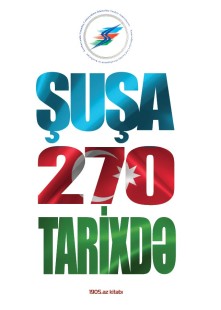
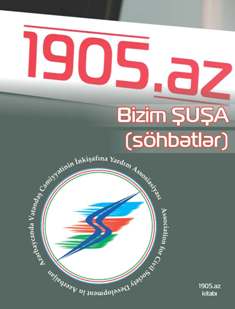
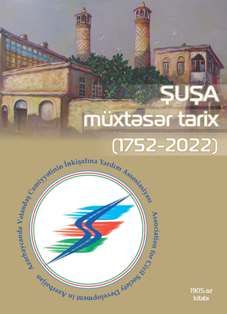
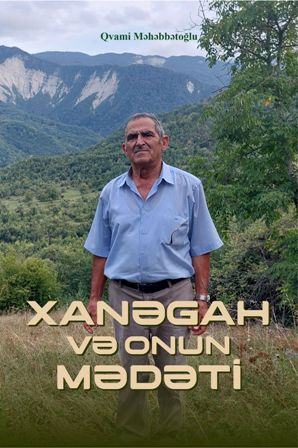
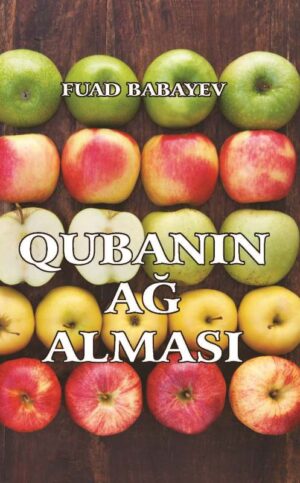
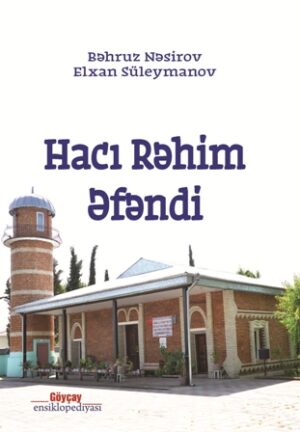
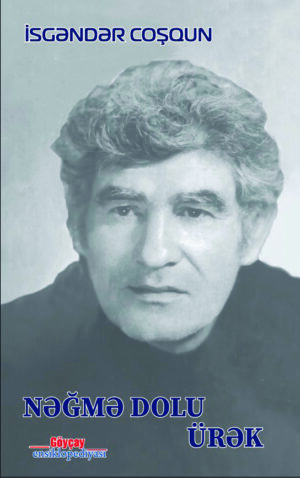
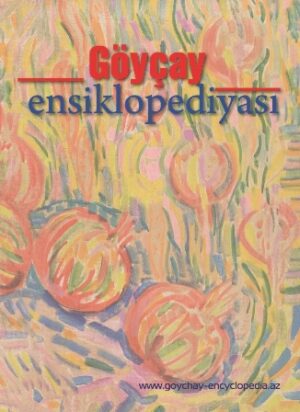












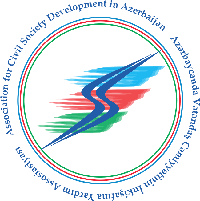
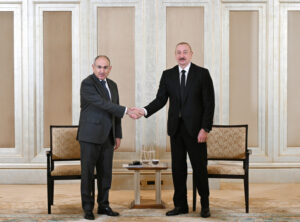 Əbu-Dabidə Prezident İlham Əliyevin Ermənistanın Baş naziri Nikol Paşinyanla görüşü olub VIDEO
Əbu-Dabidə Prezident İlham Əliyevin Ermənistanın Baş naziri Nikol Paşinyanla görüşü olub VIDEO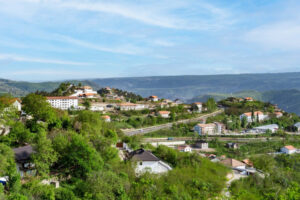 Vətəndaşlar Qarabağda beş gün qala biləcəklər VİDEO
Vətəndaşlar Qarabağda beş gün qala biləcəklər VİDEO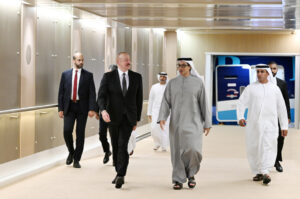 Prezident İlham Əliyev Birləşmiş Ərəb Əmirliklərinə işgüzar səfərə gəlib VİDEO
Prezident İlham Əliyev Birləşmiş Ərəb Əmirliklərinə işgüzar səfərə gəlib VİDEO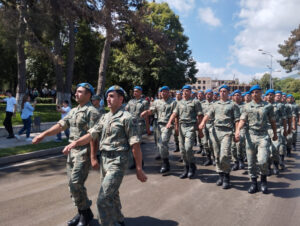 Silahlı Qüvvələr Günü münasibətilə Xankəndidə hərbçilərin yürüşü keçirilib VİDEO
Silahlı Qüvvələr Günü münasibətilə Xankəndidə hərbçilərin yürüşü keçirilib VİDEO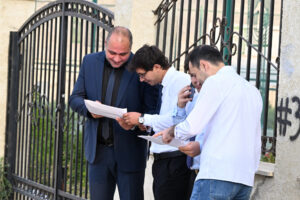 Böyük Qayıdış: Ağdam rayonunun Kəngərli kəndinə növbəti köç karvanı yola salınıb VIDEO
Böyük Qayıdış: Ağdam rayonunun Kəngərli kəndinə növbəti köç karvanı yola salınıb VIDEO